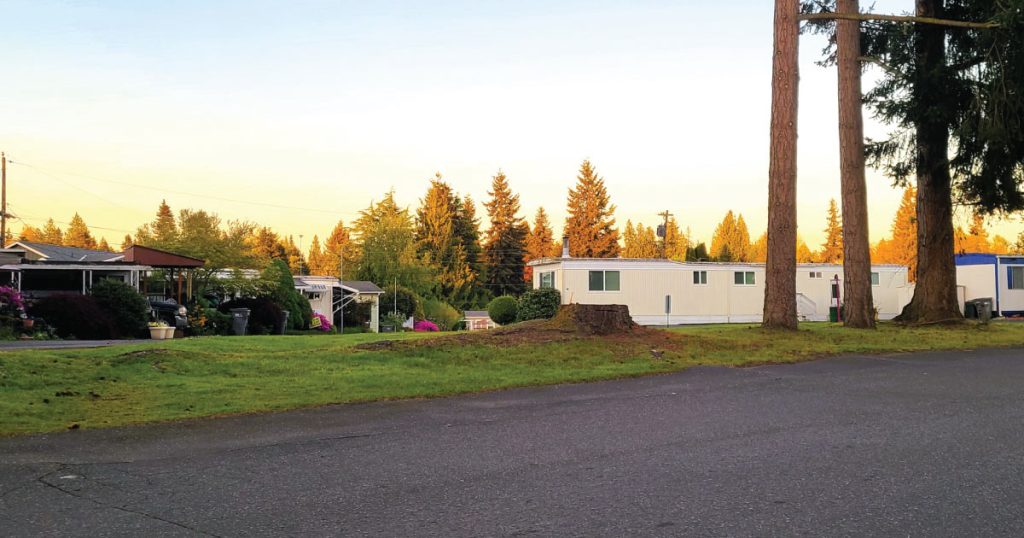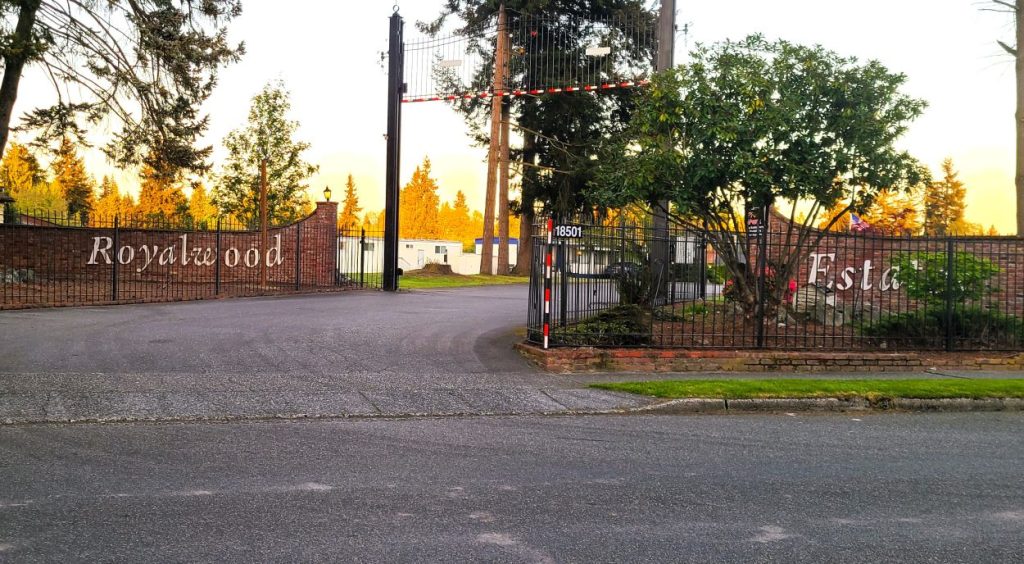The Baby Boomer generation (those born between 1946 and 1964) has been the driving force for consumption in America’s economy. Gerber’s baby food, Saturday cartoons filled with ads for sugary cereals, hula hoops, teaching the world to sing with Coca Cola are all part of the economic engine fed by the Baby Boomers. But this generation of consumers faces an unsettling reality in retirement.

Every day 10,000 Boomers retire, many surviving on an annual social security income of $15,500, only four hundred dollars above the Federal poverty level. With affordable housing in short supply, seniors have turned to manufactured homes, believing they had found a stable and affordable solution, only to discover they are now at risk of losing the homes they own.
Washington has underproduced housing since 2000, and the State Department of Commerce projects a need for an additional one million housing units over the next two decades. Many seniors, hoping to secure a safe and affordable retirement, invested their savings into manufactured homes, expecting their Social Security to cover a typical $300-500 monthly land rent.
Most Manufactured Home Communities (MHC) were originally owned by “Mom and Pop” landlords who maintained the community and infrastructure, fostering a strong sense of belonging. However, as these owners retired or passed away, their heirs often prioritized profit over people. The cost of maintaining aging infrastructure led many to sell the parks, opening the door for outside investors.
In a time when affordable housing is scarce, MHCs have become the “dollar store” of the housing market. Investors, enticed by low-interest federal loans from Fannie Mae and Freddie Mac, are snapping up these communities, without any obligation to keep them affordable. But here’s the audacity: these residents own their homes yet are being forced out by skyrocketing rents on the land beneath them. Unlike traditional renters, these homeowners have invested their life savings into their properties. Yet, because manufactured homes are often impossible to move, they are left with a devastating choice, abandon their homes without compensation or cut back on food and medical prescriptions in order to pay rents they can no longer afford.

Investors exploit this power dynamic. As one advisor bluntly puts it, “If you like having a monopoly, holding all the cards, knowing the tenants won’t move their homes out, and taking one of the tenant’s biggest assets [their home] if they default, then you’re going to love mobile home parks [as an investment].” This is not just a matter of rising rents; it’s a matter of stripping people of their most significant asset and their dignity.
The Washington State Legislature has attempted to protect these homeowners through the Manufactured/Mobile Home Landlord-Tenant Act (MHLTA). The MHLTA states, “It is the intent of the legislature to encourage and facilitate the preservation of existing manufactured/mobile home communities…Many tenants who reside in manufactured/mobile home communities are low-income households and senior citizens and are, therefore, the residents most in need of reasonable security in the siting of their manufactured/mobile homes”.
But the Legislature did not anticipate the “Perfect Storm” now threatening these residents. It consists of:
- The wave of aging Baby Boomers retiring with limited, fixed incomes.
- The flood of corporate investors buying up “Mom and Pop” communities.
- The deluge of rent and fee increases by the new investor/landlords, who justify these hikes as aligning with market rates.
- The absence of rent stabilization laws to combat the rising tide of the predatory rent and fee increases.
- The drought of alternative housing options for seniors and other low-income households who cannot afford rising rents, leading to a situation where they are forced to abandon their homes, left with nothing after a lifetime of hard work except their car to sleep in or being literally kicked to the curb and homeless.
Throughout Washington residents of MHCs are facing an escalating crisis. It’s not just about rent and fee increases; it’s about losing everything they have worked for. These homeowners are coerced into signing new leases, subjected to threatening park rules, and bombarded with undated demand notices. All with an apparent intent to create an atmosphere of fear and confusion.

The despair among these residents is palpable. In Lynnwood, the Royalwood MHC has had space rent and fees go up in one year from $640/month to over $940/month. One resident shared, “I don’t know where I will go. I don’t know if I can afford to stay here. People ask me if I am fine. I say I am fine. But I am not fine. I can’t sleep, I can’t eat. I feel lost.”
Another resident, who once had a successful career, lamented, “Today I am treated with no value or respect. I feel like a squashed bug. I used to feel safe here. Now I feel worthless with no purpose in life.”
This is not just a local issue; similar stories are echoed by seniors across multiple counties. This is elder abuse, pure and simple, people are being stripped of their homes, their security, and their hope and dignity.
What can be done as we navigate this Perfect Storm?
- At the federal level: Regulations are needed on loans that require properties purchased with federal funds to continue to provide affordable rents so current homeowners can remain in place.
- At the state level: The State Legislature must pass a rent stabilization law to protect seniors on fixed income and other low-income households. Tying rent increases to the Consumer Price Index (CPI) would be a fair solution.
- At the local level: County and municipal officials must enhance tenants’ rights and establish emergency rental assistance for those facing economic eviction.
We must act now to protect these vulnerable residents and ensure they can live out their final years with dignity and security.
Sincerely,
George Hurst, Lynnwood City Council President, and Pam Hurst, legislative lead for the Washington Low Income Housing Alliance
COMMENTARY DISCLAIMER: The views and comments expressed are those of the writer and not necessarily those of the Lynnwood Times nor any of its affiliate
Author: Lynnwood Times Contributor













4 Responses
Please put this on the ballots. Federal, state and local. Thank you.
I agree!
Alta Vista Mobile Home Park
Henderson Nv
Not enough low income areas for seniors. Down right dirty for congress and regulators to let this happen.
I too live in such a community where the land owner buys up homes the tenants can no longer afford, either remodels them cheap or replaces them. Rent increases are usually based on luxury communities. Park owners in CA have legal representation, homeowners have nothing. Landlords have WMA homeowner have only questions.